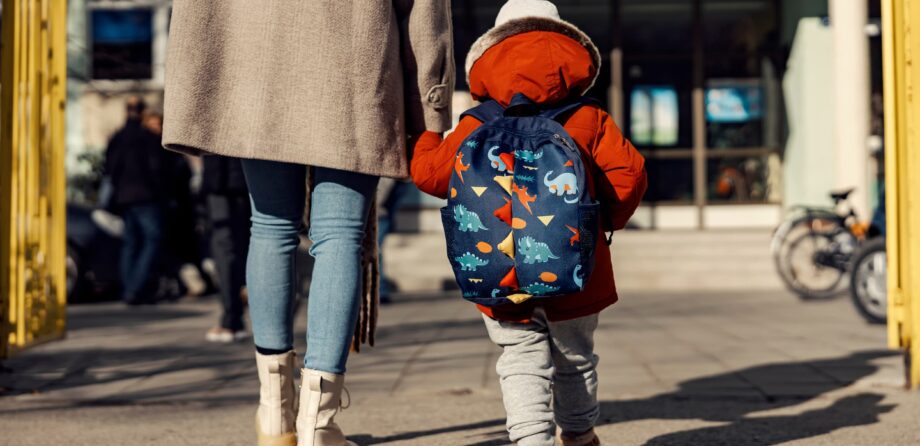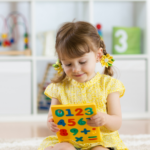
Settling children into nursery
See our top tips for settling children into nursery. Thinking about childcare and returning to work can be a daunting and often scary thought, especially when baby places in popular, high-quality nurseries often fill up fast – meaning you may have to make these decisions when your baby is still quite young.
See our tips to support parents through this process and make that transition from maternity leave to a working parent a little easier.
Settling sessions at nursery
Once you have secured a nursery place and a start date has been established, most nurseries will let you have as many settling visits with your child as you require. Some may even set a minimum to ensure that they really get to know you and your child. They will usually assign you a key person who will be your and your child’s key contact and they will carry out an initial meeting with you to find out all about your child: their likes and dislikes, routines, sleep patterns, eating styles etc.
Your child’s nursery key person
During your initial meeting, the key person should also gather some information from you about your child’s interests and development, e.g. if they are pulling themselves up, starting to say some words etc.
This is so they can start to plan your child’s next steps appropriately in line with the Early Years Foundation Stage (EYFS) curriculum that their setting offers.
All children develop at different rates and stages and are treated as individuals, so try not to worry if you think your child is or isn’t yet doing something another child their age is doing.
Your child’s key person will plan learning and activities that will individually support your child’s development and share photos and observations with you. Also, your child may achieve development milestones at home where they feel most confident, but it may take a little longer for them to display this at nursery.
Settling into nursery
When settling into nursery, it is really important to remember that the environment is very new to both you and your baby, so while nursery practitioners will aim to follow your preferences and routines, they may differ depending on how your child settles. For example, it is quite common when a child first starts at nursery that they do not eat or sleep the same as they may do at home.
Your child’s key person will discuss with you how the settling visits are going. These will usually increase gradually, starting with half an hour or an hour and you staying, to a time where you leave the room and then maybe the building.
They will work with you on times to attend, and include time over lunch and sleep so your child begins to get used to all aspects of the day.
Once you all feel happy and a start date is agreed, it is often a good idea to try to allow for shorter days for the first few weeks where possible, so try to keep some annual leave to allow for this. This should help to make the process a little easier for you both.
You may find that your child seems ok on settling but then has a little wobble when they realise it is the ‘real deal.’ This is perfectly normal and they may only be upset for the separation part and then settle down. Speak to your child’s key person if you have any concerns and over time your child will settle down.
Also, remember if they are only doing one or two days a week it may take a little longer for them to
settle than if they are attending full time. Again, this is fairly common and it will settle down.
Sleep
Nurseries will vary in practice, but usually, children will sleep based on their individual needs and preferences. This may be in a cot or on a sleep mat.
It can help practitioners if you can start to think about your child’s daytime sleep when at home and where a baby may have been used to sleeping, such as in a pram or sling during the day, to try to transition them where possible to a bed or a mat.
This will help the transition at nursery. Nurseries will have policies to ensure safe sleep practices are in operation, which you can look at.
Milk and eating
Nurseries will work with you and provide your baby with whatever they need in terms of milk and food. If you are breastfeeding they will have policies in place to store and give your child this milk safely, from a bottle or beaker.
Again, if possible, try to practice this in advance of them starting the setting so they begin to get used to taking it this way. This will then make it easier for them when they start and the surroundings and staff are different. At least they will be used to having it this way and this won’t be new too.
If you are weaning, share with staff your child’s eating preferences. Many settings have cooks on site that can make food to your child’s requirements. This is the same for allergies and dietary requirements too.
Nappies
Some nurseries may provide nappies, whereas others might ask you to take them in. If you use reusable nappies, then nurseries should include the processes around using these within their policies.
Comforters
Leaving your child for the first time can be worrying and unsettling but often having a familiar item from home can help this – you will often see children clinging on to their favourite teddy from home.
The setting will have hygienic storage for dummies too. If your child has a favourite story or song share these too, as reading or singing those throughout the day will really help them to settle in to nursery life.
Sharing information
Many nurseries now have online journals where they can upload photos instantly of your child that you can then access through a private secure account.
This enables you to see what your child is doing and can be reassuring, especially in those early days and if they cry as you leave. Some of the online journals also enable you to upload photos and information. It is encouraged that you do this as it enables the staff to find out more about your child.
This can help the staff talk about familiar things and places and even show the photos to your child to help them feel settled and at ease. It will also enable them to plan more appropriately for your child based on their interests and developmental stages.
Looking for more support? See our page of free factsheets for parents of children that go to nursery.
- PSED



